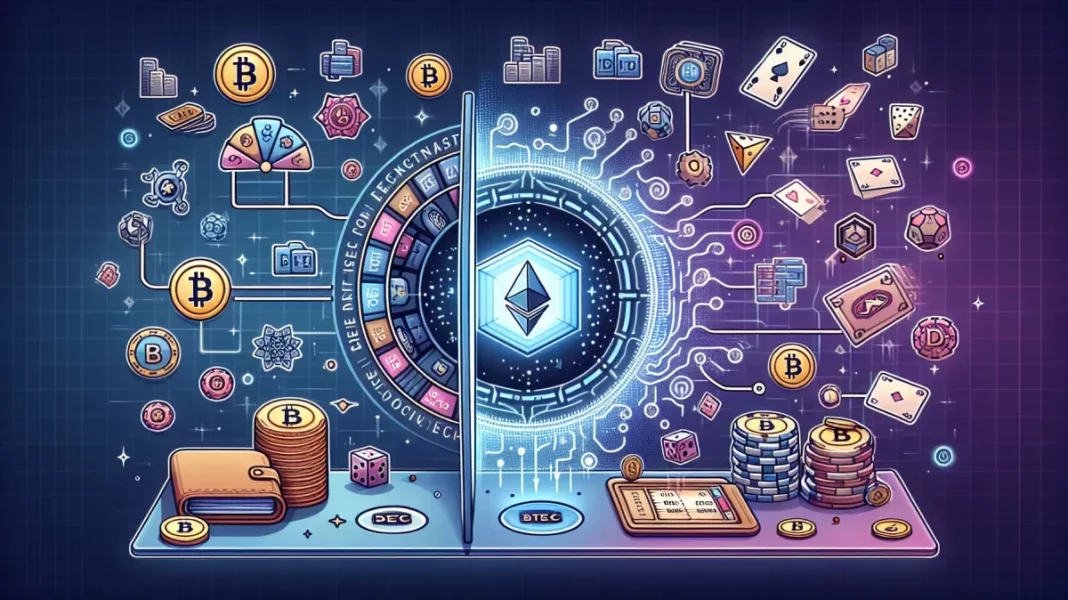As the frontier between decentralized finance (DeFi) and online betting converges, a new dawn for the gambling industry is emerging. DeFi gaming platforms are redefining the way we interact with betting, integrating financial services into gaming environments to create a unique, secure, and transparent ecosystem for players around the world.
Over the past few years, the explosive growth of DeFi has reimagined traditional finance, challenging the status quo with peer-to-peer transactions, removing intermediaries, and ensuring greater user control over assets. These principles of autonomy and decentralization are now being weaved into the fabric of online betting, creating a paradigm shift in the way games are funded, designed, and played.
The Rise of DeFi Gaming Platforms
DeFi gaming platforms operate quite distinctively from traditional online casinos. In essence, they reflect the core ideas of DeFi – users retain full control of their funds through wallets that directly interact with smart contracts, which execute game outcomes transparently on a blockchain. Consequently, the need for trust in a central authority is vastly diminished.
One fundamental advantage is that these platforms allow for something known as “provably fair” gaming. Players can verify each transaction, ensuring the games are not skewed against their favor – a stark contrast to traditional platforms where the house edge is often opaque. Moreover, decentralized gaming platforms often utilize open-source code, which permits a level of transparency that endows players with sufficient information to assess the fairness and integrity of the games they play.
Tokenization and Gaming Economies
DeFi gaming takes tokenization to new heights, with platforms introducing native tokens that can be used for staking, governance, or as the primary betting currency. Unlike traditional online betting platforms that operate mostly with fiat currencies, these tokens offer users various means to earn passive income through yield farming or staking rewards within the gaming ecosystem.
Additionally, these tokens are not just for transactions within the platform; they can also hold intrinsic value and be traded on various decentralized exchanges, which adds a layer of financial incentivization unavailable in conventional online gambling setups.
Combining Betting with Liquidity Pools
Liquidity pools are the backbone of decentralized exchanges, and DeFi gaming platforms are incorporating these mechanisms to ensure seamless betting experiences. Players can contribute to liquidity pools with the platform’s native token or other cryptocurrencies, facilitating instant payouts and bet settlements while earning a share of transaction fees as a reward for providing liquidity.
This integration makes gaming platforms less reliant on external funding and prevents player balance issues that could affect the solvency of traditional casinos. By betting against a liquidity pool rather than the house or other players, users can enjoy a greater sense of community and collective gain.
The Role of NFTs in DeFi Gaming
Non-fungible tokens (NFTs) are uniquely identifiable digital assets that are storming into DeFi gaming, representing in-game assets that players can own, trade, and even use as collateral. In some DeFi gaming platforms, NFTs can be entire casinos, slot machines, or other gaming assets that yield a portion of the profits generated from the bets placed on them.
These NFTs are not only collectible but also functional, granting holders governance rights or a say in the development of the platform. In this way, NFTs in DeFi gaming are creating economies where every stakeholder can potentially benefit from the growth and success of the platform.
The Challenges Ahead
While the advent of DeFi gaming platforms heralds an era of innovation, it also faces regulatory and technological challenges. The regulatory environment surrounding DeFi is still murky, with laws struggling to keep pace with the rapid evolution of blockchain technology. Understandably, this presents a risky venture for potential players in jurisdictions where online betting or cryptocurrency use is restricted or ambiguous.
Furthermore, the complexity of DeFi and blockchain can be daunting for the average user. Mass adoption hinges on the sector’s ability to create user-friendly interfaces that do not compromise on the principles of decentralization and security.
In Conclusion
DeFi gaming platforms are revolutionizing the online betting landscape by harnessing the power of blockchain technology to create a transparent, fair, and engaging gaming experience. As players become more aware of their advantages, these platforms are set to see an uptick in popularity, potentially reshaping the future of both the DeFi space and online gambling.
While these platforms are in their nascent stages, the convergence of DeFi with gaming represents a vast ocean of opportunities for innovation, user empowerment, and financial inclusion. As they evolve and mature, DeFi gaming platforms might just be the catalyst that propels both sectors into mainstream acceptance, setting the stage for an exciting fusion of entertainment and finance.



